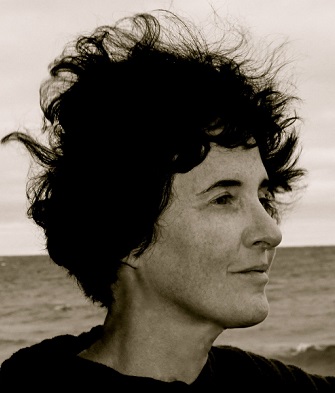Hilary Cunningham (Scharper)
Hilary Cunningham (Scharper) is a cultural anthropologist and a Canadian novelist. Her academic work centers on boundary-making as itself a multi-faceted encounter with “nature”—one which ultimately generates certain types of human-nature interactions while excluding or marginalizing other kinds. Because “borders” can encompass geophysical spaces, metaphysical categories, ecological zones, as well as human and non-human actors, Hilary focuses on “nature” itself as a kind of borderscape. Her current, SSHRC-funded research on animal sanctuaries develops this approach through the concept of “gated ecologies,” i.e., nature-borderscapes in which human and nonhuman marginalization (and destruction) unfold as a contingent, interconnected reality. As a multispecies ethnographer, Hilary also engages with visual, sensory and arts-based methodologies.
Hilary also publishes literary fiction and is associated with a newly-minted subgenre of the Gothic called the “ecoGothic.” Literary scholars have described this as a “more ecologically aware Gothic,” attuned to the spaces of “dark nature” and the roles which human fear and ambivalence play in shaping responses to the agency of the natural world. Her current work entails a collection of short stories on “companion animals,” as well as a five-volume project on the sentient landscapes of The Great Lakes. The first volume in the series, “Perdita” was published by Simon&Schuster, Source Books USA, La Court Echelle (French-language edition) in 2013 and 2015. Hilary has also published a collection of short stories exploring the “dressed body” and the metaphysics of “the dream dress” (“Dream Dresses,” Seraphim editions, 2009). For more information, see her literary website.
In 2013, Hilary and her spouse (Stephen Scharper) achieved precedent-setting legal protection for urban trees, resulting in changes to municipal by-laws in Ontario and providing (internationally) the first holistic definition of a tree’s “trunk “ in English law. See Boundary Trees: Whose Woods These Are.
Education
Ph.D. (Yale University, 1992)
Publications
“Necrotone: Death-dealing Volumetrics at the US-Mexico Border.” Volumetric States: Sovereign Spaces, Material Boundaries, and the Territorial Imagination. Franck Billé, ed. Duke University Press. 2020.
“Barb.” In Speaking Volumes: Theorizing the Contemporary Series. Franck Billé, ed., Cultural Anthropology. https://culanth.org/fieldsights/1247-speaking-volumes. June 2018.
Social Ecologies and Structural Violence: Boundary-making as Nature-making in a Gated Globe. (With Stephen Scharper.) In The Social Ecology of Border Landscapes. Michele Zebich-Knos and Anna Grichting, eds. Anthem. 2017.
Urban Futures as Ecological Futures. (With Stephen Scharper.) In The Blackwell Companion to Urban Anthropology, edited by Donald Nonini. Blackwell, 2014.
Bordering on the Environmental: Permeabilities, Ecology and Geopolitical Boundaries. In The Blackwell Companion to Border Studies, edited by Thomas M. Wilson and Hastings Donnan. Wiley Blackwell, 2012.
Ecology, Poverty and ‘Possible Urban Worlds’. In The Natural City: Re-envisioning the Built Environment, edited by Ingrid Stefanovic and Stephen B. Scharper. University of Toronto Press, 2012.
Gating Ecology in a Gated Globe: Environmental Aspects of ‘Securing our Borders’. In Borderlands: Ethnographic Approaches to Security, Power and Identity, edited by Hastings Donnan and Tom Wilson. University Press of America, 2010.
Introduction: Mobilities and Enclosures. (with Josiah McC. Heyman), Special Edition on Borders, Identities: Global Studies in Culture and Power, editted by Josiah McC. Heyman and Hilary Cunningham. Vol. 11 (3): 289 -302. 2004.
Nations Rebound?: Crossing Borders in a Gated Globe. Special Edition on Borders, Identities: Global Studies in Culture and Power, Vol. 11 (3): 329-350, 2004.
God and Caesar at the Rio Grande: Sanctuary and the Politics of Religion. Minnesota: University of Minnesota Press. 1995. Choice Outstanding Academic Title Award, 1996.
Graduate Students
People Type:
Roles:
Research Area:
Research Keywords: Anthropology-Beyond-the-Human; Multispecies Ethnography; Critical Animal Studies; Sentient Landscapes; Land Ethics; Anthropology-as-Art



